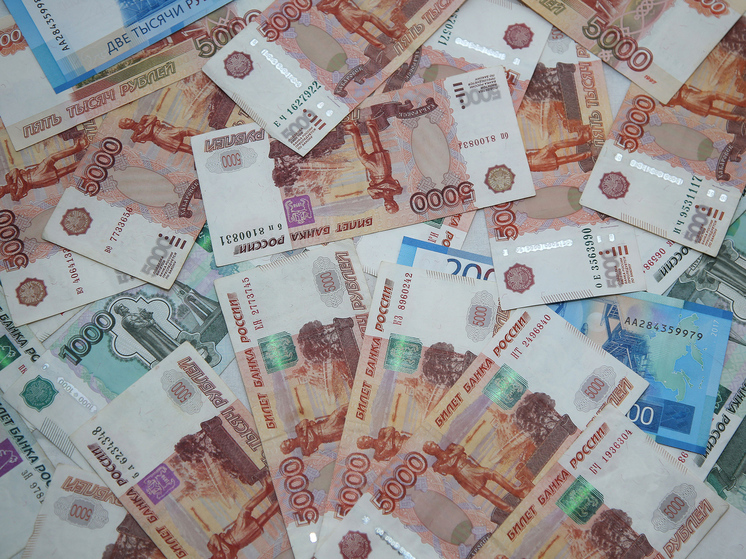Categories of workers whose salaries will be indexed have been named: from firefighters to stenographers
October is a special month for many Russian workers, especially state employees and public sector workers. It is this month that the government’s planned indexation of wages, carried out at the expense of the federal budget, most often falls. The coming October will be no exception. Government resolutions have already been signed, according to which salary increases are expected for military personnel and other security officials, as well as a wide range of government employees. Who exactly will receive what kind of increase — MK figured it out with the help of experts.

From October 1, 2023, salaries of military and security officials will increase by 10.5%. According to the decree of the Government of the Russian Federation, the salary will be increased by 1.105 times for contract military personnel and conscripts. The increase will also affect official salaries and salaries for special ranks for persons who serve in the Russian Guard, the Ministry of Internal Affairs, the Federal Penitentiary Service (FSIN), the Federal Bailiff Service (FSSP), the Federal Fire Service of the State Fire Service (FPS GPS), the Federal Customs Service (FTS), as well as salaries of the management of the State Courier Communications Service.
“To establish that when the salaries of military personnel and employees are increased in accordance with paragraph 1 of this resolution, their amounts are subject to rounding up to the nearest whole ruble” , says the resolution.
Also, from October 1, 2023, military pensions will increase. The State Duma adopted the corresponding law in 2022. According to the explanatory note to the document, this fall the average pension through the Ministry of Defense will be almost 42 thousand rubles.
Comments
“If we talk about employees of law enforcement agencies, their salaries will be increased by 1,105 times, or 10.5%, which is twice the current annual inflation rates. The state is now focusing on providing for law enforcement officers and their families, which is very correct, given the geopolitical situation. It is logical to assume that the authorities will continue to pay increased attention to this category of citizens, offering assistance and new benefits. In particular, from October 1, the average pension through the Ministry of Defense of the Russian Federation will already be 42 thousand rubles. Considering the fact that the cost of living even in the capital for the working population in 2023 was 24,801 rubles, the military pension will actually be twice as high. Of course, it falls far short of the average monthly nominal salary. According to Rosstat, this summer the average in Russia was 76,604 rubles. It is clear that people receiving a military pension will most likely be looking for options for additional income. However, its level still remains extremely high when compared with a regular pension.”
Salaries of government employees will be indexed by 5.5% from October 1, 2023. As the Ministry of Labor explained, the decision applies to employees who do not have the status of civil servants. The corresponding government decree was signed back in August. The Ministry of Labor clarified that among the employees of government bodies whose official salaries will be indexed are commandants, heads of office, stenographers, forwarders, cashiers and representatives of other professions.
In total, there are 2.4 million civil servants in the Russian Federation. The indexation of their salaries is included in the federal budget. It is planned to allocate 280 billion rubles to increase the salaries of employees of federal government institutions in 2023-2025.
Andrey Loboda comments:
“Inflation at the end of August, according to the Central Bank, amounted to 5.2%. The indexation of wages for civil servants from October 1 by 5.5%, of course, is not very large, but it should at least beat the August rise in prices in the country. It should be noted that the number of civil servants in Russia is 2.4 million people, so the salary increase will affect a fairly significant part of the population. In any case, even such measures as part of the fight against inflation will be a good help for these categories of government employees. Which clearly are not among the highest paid.”
Comments
“According to Article 134 of the Labor Code of the Russian Federation, the employer is obliged to ensure an increase in the level of real wages in connection with the increase in consumer prices for goods and services. State bodies, local government bodies, state and municipal institutions carry out wage indexation in the manner established by labor legislation and other regulatory legal acts containing labor law norms, other employers — in the manner established by the collective agreement, agreements, local regulations. That is, a citizen, if he works under an employment contract, cannot receive the same salary for years. Thus, the state is struggling with the reduction in real incomes of the population. According to the Central Bank's forecasts, inflation at the end of 2023 will be 6-7%. But, according to the population, it goes far beyond 10% and even 15%. Due to the fall of the ruble, there is an increase in prices for goods and services, in particular food, which is especially felt by public sector workers and pensioners.
Cases of violations when indexing wages by government agencies are rare. Firstly, this is monitored, and secondly, fines from 30 to 50 thousand rubles are provided for legal entities in accordance with Art. 5.27 Code of Administrative Offenses of the Russian Federation. At the same time, an employee whose salary was not indexed along with everyone else can appeal to the labor inspectorate, the prosecutor's office or the court to protect his rights.»


